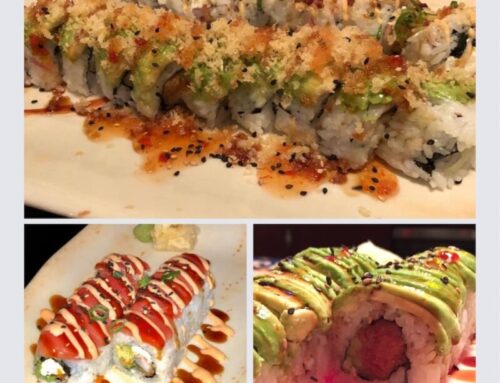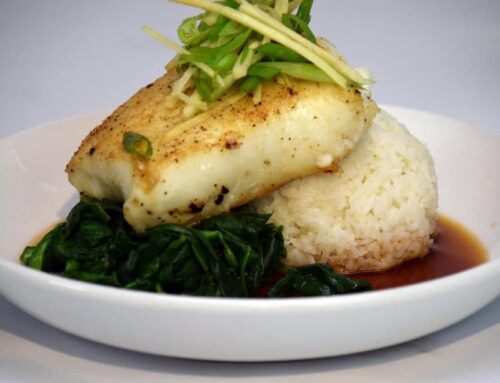
About the author : Big Fish Restaurant Bar
Seafood: Unveiling the Key Differences Between Fresh and Frozen
Introduction:
In the world of culinary delight and seafood enthusiasts, the eternal debate between fresh and frozen seafood rages on. While some may swear by the unparalleled freshness of seafood straight from the ocean, others find solace in the convenience and quality of frozen alternatives. At The Big Fish Restaurant, we understand the importance of making an informed choice when it comes to seafood. In this comprehensive guide, we’ll delve into the depths of fresh vs. frozen seafood, unveiling the key differences that will empower you to make the right choice for your palate.
Fresh Seafood: A Gastronomic Symphony
The Pinnacle of Freshness
When it comes to fresh seafood, one can’t help but conjure up images of bustling fish markets by the seaside, where fishermen haul in their daily catch. The hallmark of fresh seafood lies in its unparalleled freshness. The journey from the ocean to your plate is a swift one, preserving the delicate flavors and textures of the sea.
Taste and Texture
Fresh seafood boasts a succulent, almost buttery texture that’s hard to replicate. Whether it’s a flaky piece of halibut or a plump shrimp, the flavors are intense, unadulterated, and simply delectable. The immediate consumption of fresh catches ensures that you experience seafood in all its glory.
Frozen Seafood: The Science of Preservation
Locking in Freshness
While the thought of frozen seafood may conjure concerns about quality, it’s essential to understand the science behind freezing. Modern freezing techniques, such as flash freezing, allow seafood to be preserved at its peak. By lowering the temperature rapidly, ice crystals are minimized, preventing cellular damage, and locking in freshness.
Convenience and Availability
One of the most significant advantages of frozen seafood is its availability year-round. Regardless of your geographical location, you can enjoy a wide variety of seafood options without being constrained by seasonality. This convenience opens a world of culinary possibilities.
Making an Informed Choice
Sustainability
When deciding between fresh and frozen seafood, it’s crucial to consider sustainability. Responsible sourcing practices ensure that both options can be environmentally friendly. Look for certifications like MSC (Marine Stewardship Council) or ASC (Aquaculture Stewardship Council) to make an eco-conscious choice.
Culinary Application
The choice between fresh and frozen seafood often depends on the culinary application. If you’re planning a delicate ceviche or sushi night, fresh seafood may be your preferred choice. However, for hearty stews, chowders, or grilled dishes, frozen seafood can offer convenience without compromising on flavor.
Conclusion
In the age-old debate of fresh vs. frozen seafood, there is no one-size-fits-all answer. Both options have their merits, and the decision ultimately boils down to your preferences, culinary plans, and ethical considerations. For an upscale ambiance and a delectable selection of fresh seafood, your destination is none other than the esteemed Big Fish Restaurant. Here at Big Fish Restaurant, we are committed to equipping you with the knowledge required to make well- informed decisions. We can’t wait to greet you for an exceptional dining
experience in Orange Beach!
Frequently Asked Questions (FAQs)
1. Is fresh always better than frozen?
• Fresh seafood is known for its exceptional taste and texture, but frozen seafood can also be of high quality. The choice depends on your specific culinary needs and preferences.
2. Does frozen lose its nutritional value?
• When frozen properly, seafood can retain its nutritional value quite well. Modern freezing techniques help preserve essential nutrients.
3. How should I store frozen seafood?
• Store frozen seafood in a well-sealed, airtight container or vacuum-sealed bag in the freezer. This helps prevent freezer burn and maintains the quality.
4. Are there any advantages to frozen seafood?
• Yes, frozen offers year-round availability, making it convenient for meal planning. It’s also a great option for recipes that require longer cooking times, such as stews and casseroles.
5. Can I use frozen seafood for sushi or ceviche?
• While fresh is typically preferred for raw dishes like sushi and ceviche, some high-quality frozen seafood may also be suitable. Be sure to thaw it properly and check for recommendations on the packaging.
6. How can I ensure the sustainability of my seafood choice?
• Look for products with certifications like MSC (Marine Stewardship Council) or ASC (Aquaculture Stewardship Council). These certifications indicate responsible and sustainable sourcing practices.
7. What are the main factors to consider when choosing between fresh and frozen seafood?
• Consider factors such as your culinary plans, convenience, availability, and personal taste preferences when making your choice.
8. Can I mix fresh and frozen seafood in a single dish?
• Yes, you can combine fresh and frozen seafood in recipes. Just be mindful of the cooking times and ensure that both types are cooked to the appropriate doneness.
9. Are there any safety concerns with frozen seafood?
• As with any food product, it’s essential to follow proper handling and cooking guidelines to ensure food safety when dealing with frozen seafood.
10. Where can I find high-quality fresh and frozen seafood?
• You can find high-quality seafood at reputable markets, grocery stores, or through online seafood suppliers. Ensure that the source you choose maintains strict quality and safety standards.



